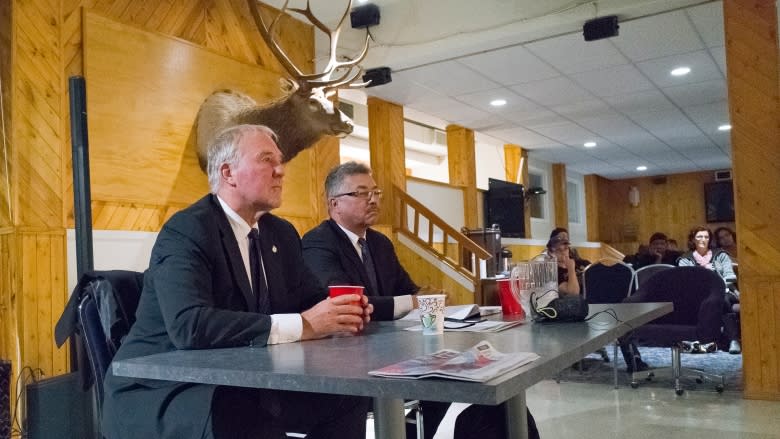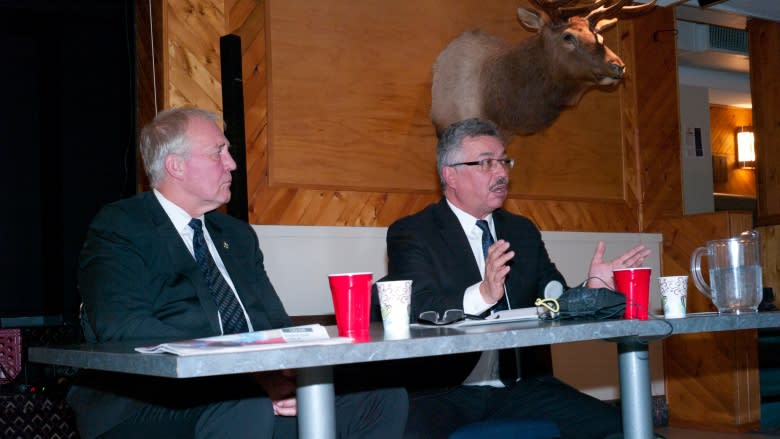N.W.T. pot legislation could set rules for mail order marijuana, local prohibition
Community governments in the Northwest Territories will have the control over cannabis distribution that the government of the Northwest Territories gives them.
This was the message from N.W.T. MP Michael McLeod and Liberal MP Bill Blair. Blair, the federal government's representative on legal cannabis, was in Yellowknife Wednesday evening for a public meeting hosted by McLeod.
He assured the about 40 people who came out to hear what he and McLeod had to say that the territorial government will have the authority to define and control distribution in the North.
It's been clear that territorial and provincial governments would be responsible for defining legal distribution within their jurisdictions, but what hasn't been clear is to what extent jurisdictions would be able to supersede federally approved methods of distribution, like mail order cannabis.
But Blair said mail order weed will only come to the communities if the territorial government doesn't say otherwise.
"That's their authority to make that decision," Blair said.
Another open question has been whether or not the territorial government would be able to authorize community governments to introduce local restrictions or outright bans on cannabis within their communities, as some already do with alcohol.
McLeod said community bans are not a federal concern, but the federal government will give the territorial government the legislative control it needs to control the presence of cannabis in the communities.
"The territorial government will have the tools to decide that," he said.
'Are the communities ready,' not the right question
The audience on Wednesday evening included a cabinet minister, a regular MLA, frontline community advocates and regular citizens.
For many, a more urgent discussion than preparing for legal weed was how to tackle the already serious issues related to addictions, drug use and related social ills.
"Are the communities ready is not the right question," said Noeline Villebrun, former Dene National Chief.
Villebrun said she was also concerned the discussion surrounding legalized cannabis in the Northwest Territories was taking place outside the framework of Dene law, traditions and language.
"Marijuana is a plant," she said. "For me it's not a street drug like crack or fentanyl ... those are manufactured drugs. This plant has been in our earth from time immemorial and we know the creator has put plants on this earth to heal us."
She wants to see more work done to inform Indigenous community members in their first languages, and not only in English or French.
She also questions the imbalance between social resources available in a larger centre like Yellowknife to deal with any fallout from legalized cannabis compared to what is available in small, remote communities. Villebrun pointed out there are no addictions treatment centres available in the territory.
"The government is aware there's a lot of work to do regarding aboriginal people, language, education and health," McLeod said.
"We're working hard to ensure Aboriginal people are treated like equal partners."
But he acknowledged that getting the message out about legal weed isn't easy.
"It's a challenging discussion when we talk to our elders," McLeod said. "For them there's no difference between marijuana and crack cocaine or fentanyl, or any of those hard drugs ... but the issue of drugs in our small communities is a real one.
"It comes up almost every time we have a discussion in the communities or a public meeting."




